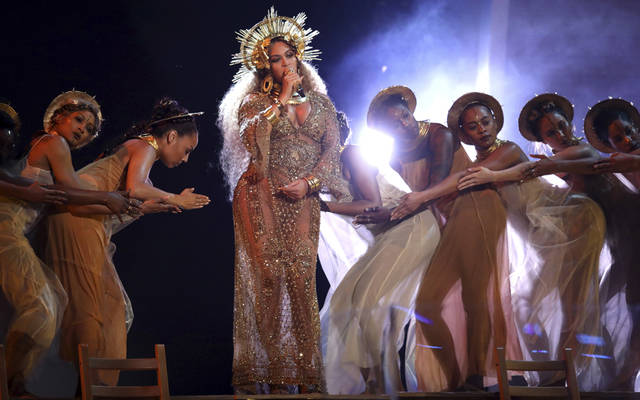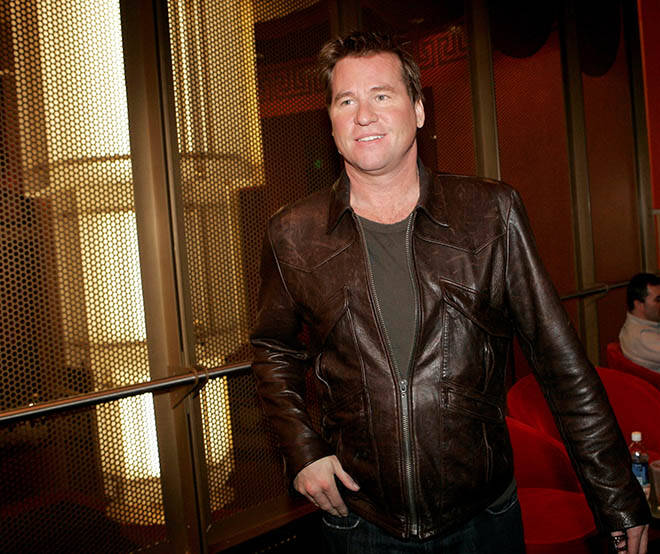Who pays when Beyoncé songs play at the Olympics?

ASSOCIATED PRESS
Beyonce performs at the 59th annual Grammy Awards in Los Angeles last year.
In an earlier era, Olympic figure skaters competed to the sounds of orchestral pieces like Korngold’s movie themes, as Dorothy Hamill did in 1976. Now, the soundtrack is Beyoncé, Coldplay and “Despacito.”
The transition to pop has been happening for years. But the big news at the 2018 Winter Games in Pyeongchang, South Korea, is that for the first time skaters can use music with lyrics, a rule change by the International Skating Union meant to attract a younger audience.
The appearance of more recognizable pop — the first Olympic competition last week included Ed Sheeran, an Oasis cover and “Dust in the Wind” — has led to questions from viewers about how musicians are compensated, and how the skaters secure permission to use songs. As with everything related to music copyright, the answer is complicated. But the basic rule is simple: Standard licensing fees paid by broadcasters cover these uses, and the money makes its way, eventually, to songwriters as royalties.
Most of the time, when songs are included on television, producers have to pay for a so-called synchronization license from music publishers. Negotiations can lead to high fees for the most in-demand pieces, like Beatles songs.
But since the Olympics are considered a “live event,” even when tape-delayed, no such special permission is needed, said Steve Winogradsky, a lawyer who is an expert in music licensing.
“These are basically live performances,” Winogradsky said, “so there is no synchronization right, as there would be in a pretaped motion picture.”
Don't miss out on what's happening!
Stay in touch with breaking news, as it happens, conveniently in your email inbox. It's FREE!
Instead, according to Winogradsky and other executives, music in routines at the Olympics are covered by what is known as a performing right: the permission to perform or broadcast a piece of music in a public, commercial setting.
If NBC were to broadcast the routines outside the context of its Olympics coverage, however, then it may need further permissions.
“To the extent that NBC is exploiting the work more than once, then they would need a sync license for that,” said Robert E. Allen, a lawyer who deals with music copyright.
NBC declined to comment.
Concert venues, radio stations, television networks and even restaurants pay set fees for performing rights through so-called blanket licenses, which are issued by clearinghouse groups like ASCAP and BMI in the United States and cover millions of songs. Those groups then pay royalties based on how, and how often, the songs are played. (Broadcasters in other countries pay their local collection societies, like Sacem in France or PRS for Music in Britain.)
In other words, the financial gears for music at the Olympics turn in much the same way as they do for any song played on the radio. For any one performance, that payment might be small, but in the aggregate this is one of the music industry’s biggest and most reliable kinds of income: ASCAP and BMI, for example, each collect more than $1 billion a year in licensing fees.
So that means Beyoncé — whose songs “Run the World (Girls)” and “Halo” were used by French skater Maé-Bérénice Méité, inspiring a homemade soundtrack by the comedian Leslie Jones — will make money from the games, but most likely far less than she would if one of her songs was in a movie or a sitcom.
But she is picking up accolades from the athletes: Beyoncé’s music is “crazy, wild and fun,” Méité said. “You can just dance to it.”
© 2018 The New York Times Company




